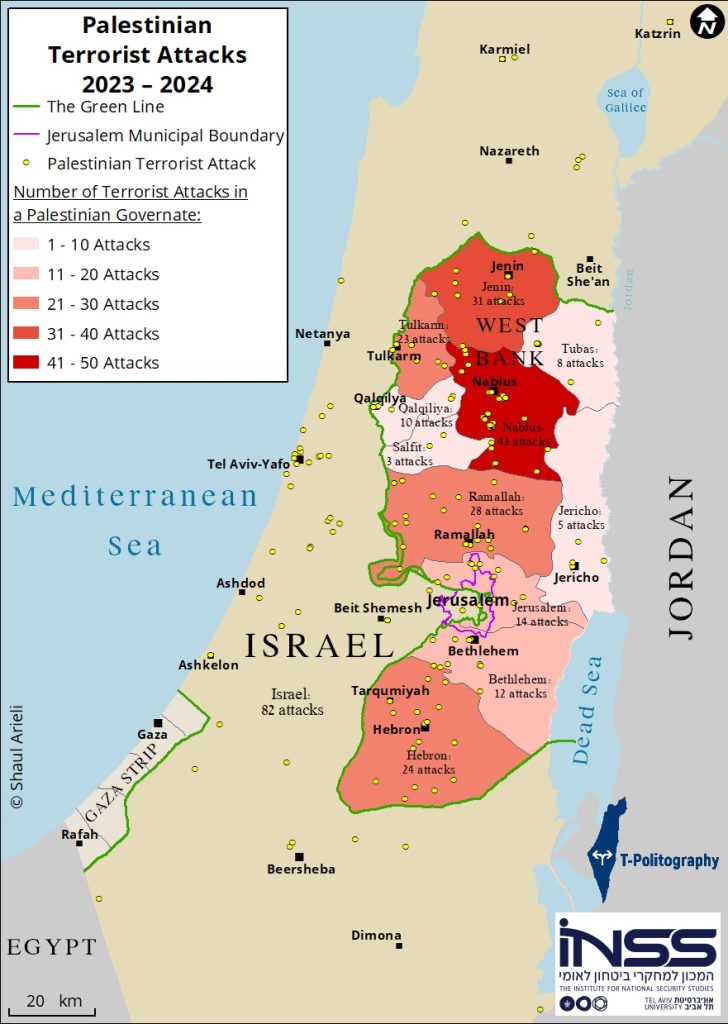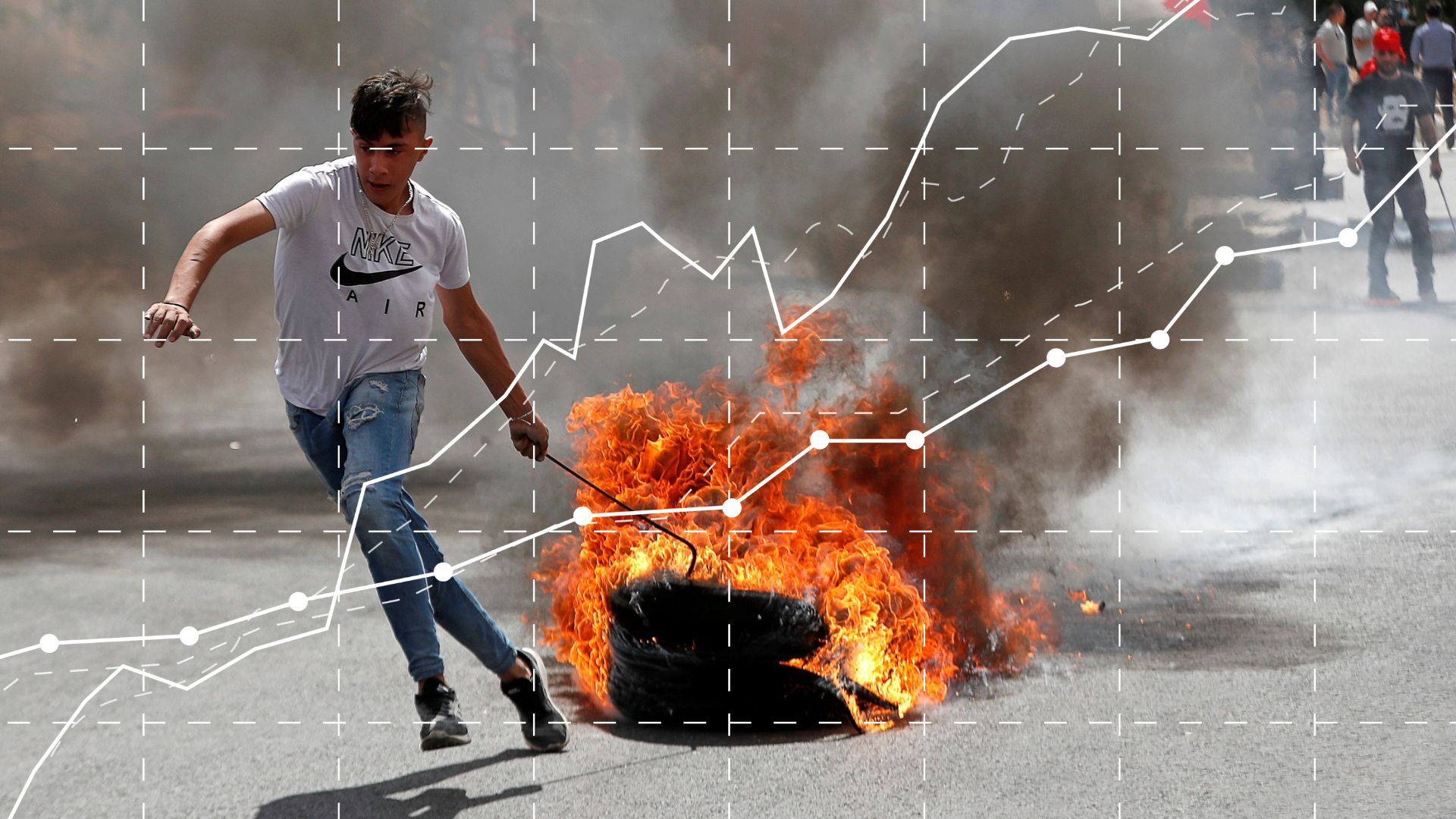Publications
Spotlight, February 4, 2025
In the past two years, there has been a dramatic increase in the scope of terror attacks in the West Bank and within the Green Line (see Figure 1). According to data of the Israel Security Agency (Shin Bet),[1] 6,828 terror attacks were carried out in 2024 (including stone-throwing and Molotov cocktails), double the number of attacks in 2023 at 3,436 attacks. Nonetheless, in the West Bank and Jerusalem, there was a 44% decrease in the number of significant attacks (including vehicular attacks, stabbings, shootings, and explosive devices; see Figure 2), with 231 significant attacks recorded in 2024 compared to 414 in 2023.
The data also reveals that within Israel, Israeli Arabs carried out 14 significant terror attacks, five of which were committed by Bedouins from the Negev, with stabbings being the most common method. In 2024, the number of Israeli casualties from terror attacks (excluding data from the northern and southern fronts during the “Swords of Iron” war) stood at 46 fatalities (an increase of about 7% compared to 2023) and 337 injured (a 50% increase), with October being the deadliest month of that year (11 killed and 76 injured).
The map below shows the distribution of significant terror attacks between 2023 and 2024. It indicates that 82 attacks occurred within the Green Line, from Katzrin in the north to Beersheba in the south, with a high concentration in Tel Aviv and its surroundings. In the West Bank, the Nablus district had the highest number of attacks (43), followed by Jenin (31), Ramallah (28), Hebron (24), and Tulkarm (23).
As part of the fight against terror, in 2024 alone, the Shin Bet thwarted 1,040 significant terror attacks in the West Bank and Jerusalem, a number similar to 2023 with 1,032 thwarted attacks.

______________________
[1] The data on terror attacks is based on the monthly reports of the Israel Security Agency and does not include the northern and southern fronts during the “Swords of Iron” war, nor does it include the events of October 7. For more information, please see https://www.shabak.gov.il/reports/



